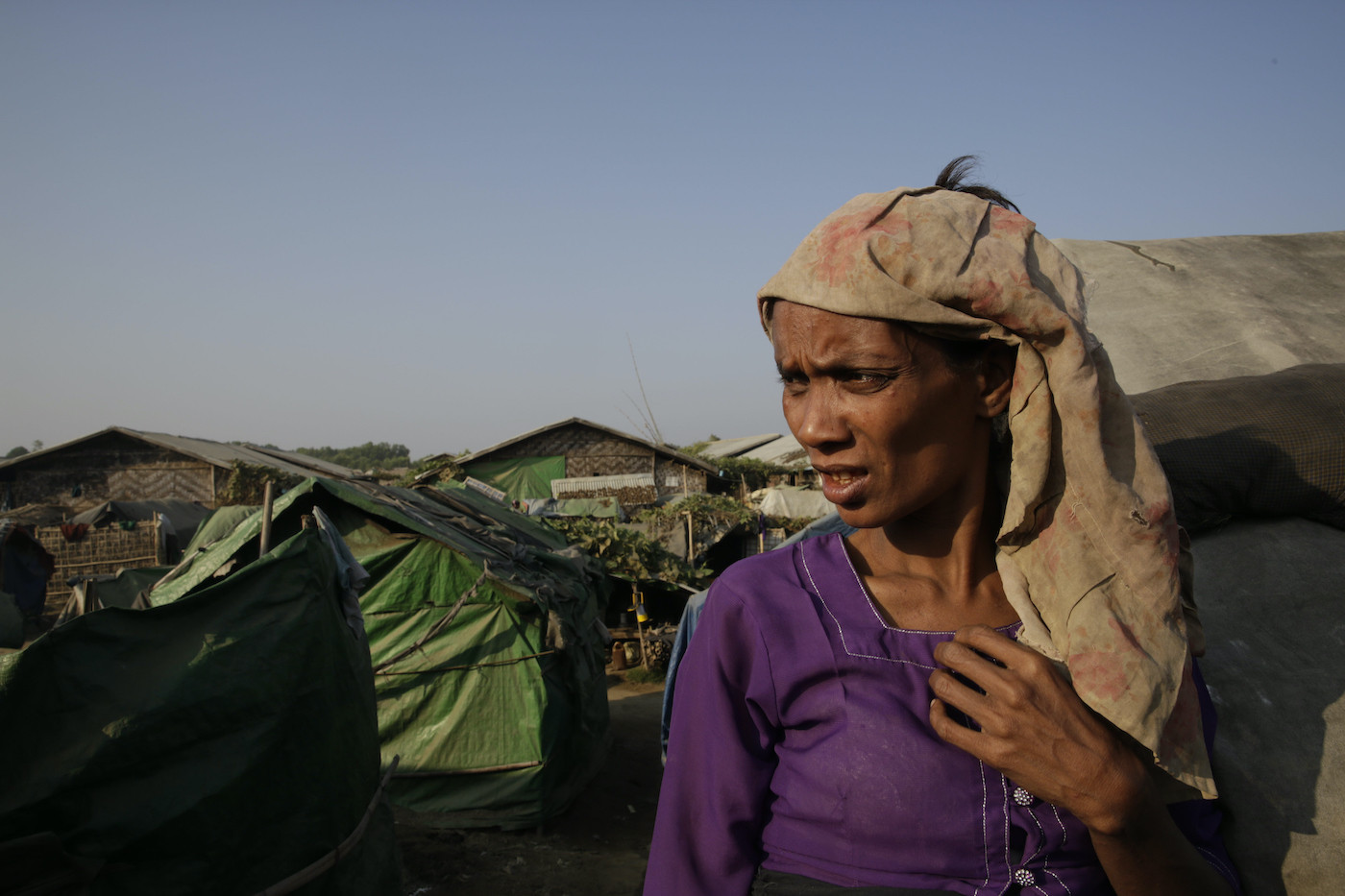March 29, 2023

By Wai Wai Nu and Naomi Kikoler
One year ago, the United States made a historic determination: the atrocities committed against the Rohingya by the Burmese military constitute genocide and crimes against humanity. Secretary of State Antony Blinken made this announcement in front of Rohingya and Holocaust survivors at the United States Holocaust Memorial Museum. This statement was a long-awaited recognition of the brutal persecution and violence suffered by this predominantly Muslim community from Burma's Rakhine State. Recognition was an important step. Now we must focus on protecting the Rohingya who have been displaced and those who remain in Burma. The Rohingya suffered decades of violence, discrimination, marginalization and persecution—including a crescendo of violence that spurred the genocide determination. Their plight continues to this day. The very military that committed genocide against them staged a coup in February 2021. Since then, the military has cracked down on civilians across the country. All of the structures that led to the persecution of the Rohingya remain in place. And since the coup the military has introduced even more repressive measures, including growing restrictions on the remaining 600,000 Rohingya’s freedom of movement with increasing security checkpoints, arrest, detentions, and extortion while keeping the apartheid-like conditions in most of Rakhine state, where many live, largely inaccessible to independent monitors.
At the same time, the situation of the approximately one million Rohingya in refugee camps in Bangladesh drastically deteriorated. With practically no educational or economic opportunities and surrounded by rampant crime, refugees become prey to human traffickers. According to the UN High Commissioner for Refugees, 2022 saw a massive increase in the number of people fleeing by boat over the previous year, and it was the deadliest year for these attempts to flee over sea since 2014. Rohingya refugees today are forced to choose between an array of dangerous options: they could embark on a perilous journey by boat to other southeast or south Asian countries; they could return to Burma, where they would face a risk of genocide; or they could remain in Bangladesh where they face growing insecurity and hopelessness.
For decades, the world focused on supporting Burma’s pro-democracy movement, perhaps with the hope that building democracy would naturally benefit all groups in the country. Yet even as Burma was making steps toward democracy, the violence against the Rohingya was culminating in genocide. The world cannot repeat the mistakes of the past. As policymakers in the US and elsewhere try to push back the brutality of Burma’s military and support a future democracy, we cannot lose sight of the vulnerable communities who may be targeted along the way.
The Rohingya crisis must be addressed as part of a larger problem in Burma—the absence of human rights and democracy. The military dictatorship that ruled Burma for years has systematically oppressed ethnic and religious minorities, including the Rohingya. To tackle the ongoing persecution of the Rohingya and the fight for democracy in Burma, both issues must be addressed together. As the world has learned through the experience of the Rohingya people—genocide was committed when it appeared the country was becoming more democratic—no genuine democratic change can be built on the backs of the persecuted.
One year ago, Secretary Blinken reaffirmed the US "commitment to accompany Rohingya on this path out of genocide—toward truth, toward accountability, toward a home that will welcome them as equal members, that will respect their human rights and dignity, alongside that of all people in Burma."
The US has provided significant humanitarian assistance for the Rohingya, but needs are growing among Rohingya who have been plunged into a state of perpetual hopelessness. The US can do more, and other countries, and regional organizations, notably the Association of Southeast Asian States (ASEAN) must step up too to provide humanitarian assistance, promote accountability, and press the Burmese military to cease its violent campaigns.
First and foremost, the US and the international community should continue to advance efforts to hold accountable those responsible for genocide and crimes against humanity. This includes sanctions on MOGE—a state-owned oil and gas company—and other relevant military-owned businesses, which would reduce the funds available to Burma’s military to pursue its brutal acts. The US and others could continue support for the ongoing justice processes including the Independent Investigative Mechanism for Myanmar and cases in international and domestic courts.
Protecting the Rohingya from further violence and persecution is another critical priority. The international community must work proactively with Burma’s civilian leadership and civil society actors to ensure support for an effective transitional justice process to prevent future atrocities and persecution, ensuring that Rohingya have a prominent—and equal—place in a future Burma. This would require a restoration of full citizenship for Rohingya, restoration of equal rights as an ethnic group of Burma and genuine inclusion of Rohingya in decisions that will shape the country’s future.
The US and other countries should also bolster humanitarian support for those who have suffered mass atrocities and ensure the protection and well-being of refugees in the region. Countries in south and southeast Asia should protect Rohingya refugees, including rescuing those stranded at sea and protecting refugee populations within their territory.
Lastly, the United States and the international community must support Rohingya by listening to the voices of Rohingya and enabling Rohingya participation in all fora related to their and Burma’s future, improving access to resources and formal education for Rohingya women and youth, and supporting Rohingya civil society.
The Rohingya have suffered for too long and have endured unimaginable violence and persecution. It is time for the world to stand with them and support their journey toward justice, equality, and freedom.
Wai Wai Nu is founder and executive director of Women's Peace Network in Burma, and a former Genocide Prevention fellow with the Simon-Skjodt Center for the Prevention of Genocide.
Naomi Kikoler is the director of the Museum's Simon-Skjodt Center for the Prevention of Genocide.
View All Blog Posts